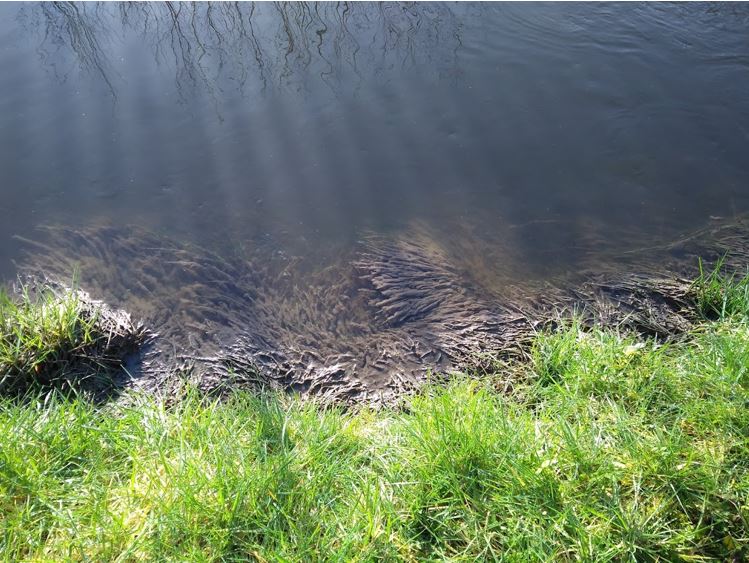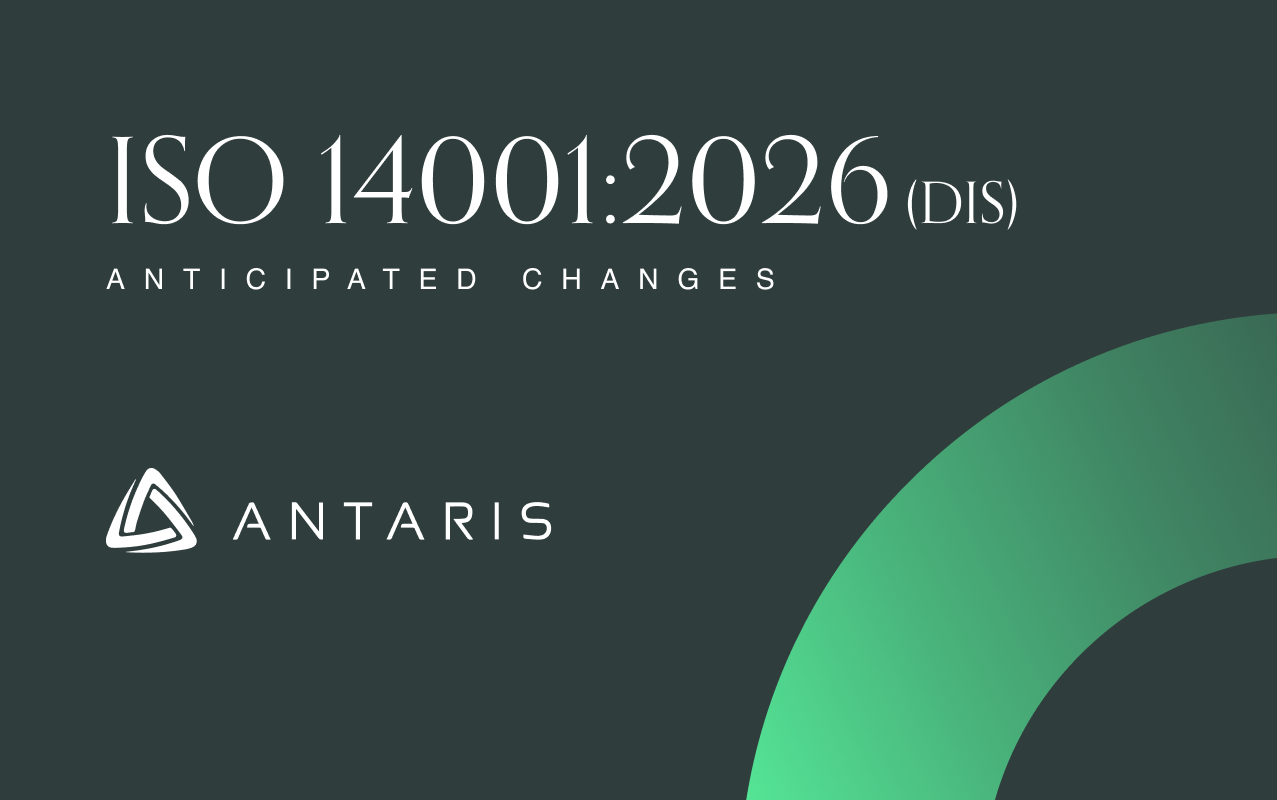Environmental Prosecutions: If you think compliance is expensive wait till you see the costs of non-compliance!
Managing Environmental Risk
At Antaris, we recommend having an Environmental Management System as the key framework to manage risk. Environmental legislation is a far reaching and widespread unruly monster. It can be difficult to keep abreast of all the changes happening across all the different elements of your business which interact with the environment. Not keeping up to date and compliant with your responsibilities can result in environmental prosecutions by the Environmental Protection Agency or the Local Authority or potentially inland fisheries Ireland for water pollution.

All this red tape is ridiculous
Occasionally in our work we come across the attitude, that environmental restrictions or controls are strangling business and are basically an unnecessary nuisance. It’s worth putting the environmental controls into context. Our fair green isle has polluted water, damaged habitats and dirty air. The EPA say that only half our rivers, half our lakes and a third of our estuaries are in satisfactory ecological health. We have gone from having 575 of the highest quality biological aquatic sites in 1990 to just 20 in 2018, an all time low.
Almost all of the EU protected habitats in Ireland (85%) are in bad shape, technically described as “Unfavourable status” and half of them are getting worse (46% ), and while air quality in Ireland can be described generally as good the EPA estimate that 1,300 people are dying prematurely each year due to poor air quality.
If we want clean air and clean water and to stop habitats degrading, then environmental protections will need to increase not go away.
Polluter pays principle
European environmental legislation from which we derive most of our environmental rules is based on the “polluter pays principle” which at its most basic level requires that… “if you make the mess, you clean it up (or pay for it to be cleaned up)” .
Pollution is broadly defined in the Protection of the Environment Act 2003 as the direct or indirect introduction to an environmental medium (air water or land), as a result of human activity, of substances, heat or noise which may be harmful to human health or the quality of the environment, result in damage to material property, or impair or interfere with amenities and other legitimate uses of the environment.
In law, the Polluter Pays Principle imposes liability on a person who pollutes the environment to compensate for the damage caused and return the environment to its original state regardless of the intent.
The European Communities (Environmental Liability) Regulations 2008, has been in force for more than a decade now. These Regulations (SI 547 of 2008) transpose EU Directive 2004/35/CE on environmental liability with regard to the prevention and remedying of environmental damage. The Regulations establish a framework of environmental liability based on the ‘polluter-pays’ principle, to prevent and remedy environmental damage. The Environmental Protection Agency is the competent authority for these Regulations.
However, Environmental liability is merely a ‘backstop’ for when things go wrong. Organisations should be proactively putting in place appropriate pollution prevention measures so that environmental threats and damage do occur in the first place. This is where risk management within an EMS can ensure that pollution events do not arise.
Who could prosecute me?
If you operate a large industrial process you will probably be regulated by the EPA, who could prosecute you for non-compliance. The EPA environmental prosecutions are published each year and can be seen going back to 2000 here: https://www.epa.ie/enforcement/prosecute/
The Local authorities are generally responsible for environmental prosecutions under the Water Pollution Acts although the Inland Fisheries Ireland can and do undertake environmental prosecutions for pollution offences in freshwater waterbodies which include cases taken for damage to the fisheries habitat.
Court fines, the least of the problem
Where an organisation is prosecuted by the EPA or a local council, the fines imposed by the court are often the smallest element of financial and other associated penalties.
In an example from the UK, a water company was fined £15,000 for polluting a river. They also had to cover costs for:
Tankering away the chemical – £32,600
Plugging the leak – £8,300
An initial fish survey – £6,000
Installing leak detection equipment – £60,000
Charge for Environment Agency officers – £2,270
Further fish surveys – £20,000
Restocking of the river – £63,500
TOTALING: £192,670
The ‘hidden’ costs were over 12 times that of the fine levied in court. These do not cover internal costs, repairs etc.
Costs of an environmental incident
The costs of cleaning up from an environmental pollution event should not be underestimated and can run into the millions. While insurance is good to have, normally public liability insurance will only cover third party damages, leaving the statutory clean-up costs, own-site clean-up costs, and any biodiversity/habitat damage remediation to the company’s own funding. Historical releases and gradual releases over a long time are unlikely to be covered by the public liability insurance.
In 2015 the DPP took a successful prosecution of an illegal landfill at Kerdiffstown in the Dublin Circuit court on foot of a file prepared by the EPA. The landowner company Jenzsoph Ltd was fined €20 million for nuisance odours and pollution offences. €11.78m was spent on securing the site and preventing it causing further pollution, and the total remediation costs are estimated at €30 million.
It is not clear that Jenzsoph Ltd ever paid the fine. The EPA does require financial provision for environmental liabilities for certain activities, including high risk waste sites and SEVESO sites and have comprehensive guidance here. While the EPA now only require financial provision for certain activities, the liabilities are always there and you should consider how you would meet the costs of any potential environmental liabilities.
Reputational Damage

Being responsible for an incident and associated clean-up costs, or being found guilty of an environmental crime risks bringing you into disrepute. This negative public opinion of your organisation can be very difficult to reverse and is likely to result in reduced profits and revenue.
Customers make purchasing decisions based on the reputational elements of a company or product. Environmental stewardship is a key element of sustainable business. Successful companies must go beyond having sustainability as part of marketing and PR to actually having a genuine commitment to sustainability that is needed for long term survival.
Organisations are coming under increased scrutiny from a whole range of stakeholders to demonstrate that they understand environmental issues and obligations. Being able to confidently provide such evidence, in a transparent way using a certified EMS is useful for improving your reputation. Conversely, the negative impact an environmental incident can have on an organisation can be just as damaging. Protecting against such incidents occurring in the first place is an important tool for overall business risk management.
Prosecution …a last resort
Ironically it’s not really in anyone’s interest for a prosecution to go to court as its an expensive and slow process for enforcement authorities and operators alike. As things stand, enforcement authorities will avoid court proceedings if possible and try to get the situation remedied without needing to resort to a courtroom trial. The EPA have an enforcement policy, as do the local authorities (see Kilkenny Co. Co. for example) which sets out how they hope to resolve matters before going to trial. Of course, enforcing authorities still need to ensure that their enforcement is dissuasive, consistent, proportionate, and transparent.
A better, more efficient and responsive way to enforce?
We have seen a move to civil financial penalties is the UK. In these cases operators can accept a fine and avoid further criminal prosecution, or if they choose not to accept the fine then the enforcing authority can proceed with the prosecution. As they can be imposed by a regulator directly, without going through the criminal process, they are often seen as an effective and efficient means of deterring misconduct. The EPA produced a report on “Administrative Sanctions for Environmental Offences”, and the Law Reform Commission of Ireland produced a report on Regulatory Powers and Corporate Offences. The Oireachtas library and research service produced a report on Administrative financial sanctions which concluded that “Administrative financial sanctions are likely to become an increasingly prominent feature of the Irish regulatory landscape. They are evidently an important weapon in the arsenal of any regulator in ensuring that targeted and proportionate sanctions are a realistic threat to regulated bodies”. Therefore, we can expect to see them in environmental compliance in Ireland in the coming years.
To read more blogs on biodiversity, climate and the environment, click here.
References:
https://www.epa.ie/enforcement/financialprovisionforenvironmentalliabilities/
Kerdiffstown remediation contractor appointed Oct 2020
EPA 2015 prosecutions (including Kerdiffstown)
Oireachtas research report on administrative financial penalties
https://www.nqa.com/en-gb/resources/blog/october-2020/cost-of-environmental-prosecution









